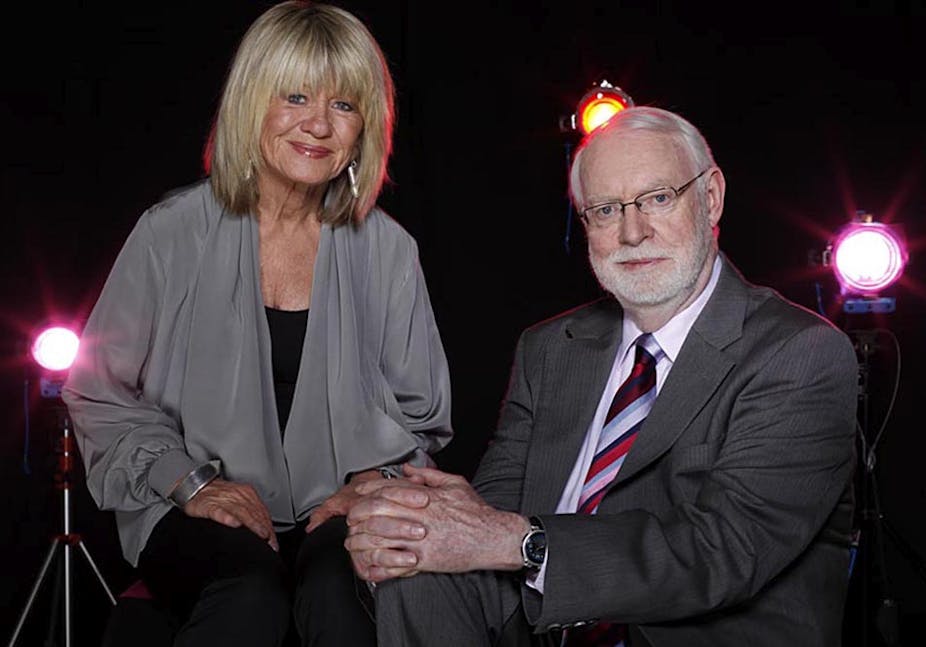If you think of the enduring screen partnerships – Abbott and Costello, Laurel and Hardy, Grahame Kennedy and Bert Newton – few are based on equality of authority and mutual respect.

But elements of equality of authority and mutual respect are the first things that come to mind as the ABC announces the end of the 28-year screen partnership of Margaret Pomeranz and David Stratton. The final episode of At the Movies will be recorded on December 9, after which the program will be quietly conducted to the back stalls to enjoy retirement.
And there was also the business of how annoying they could be to each another and to us the hapless and helpless viewers. But from its first iteration on SBS as The Movie Show, there was never a question of Margaret playing straight woman to David, and even less of the reverse being workable.
David and Margaret came to cinema by very contrasting routes.
David grew up in Britain and was seduced by the silver screen at a young age. His arrival in Australia to become the director of the Sydney Film Festival in 1966 breathed some European vitality into the Sydney film scene. The fight against film censorship that rapidly followed set the scene for the censorship reforms of Attorney General Don Chipp, in the dying days of Billy McMahon’s Coalition government.

Margaret came to film, in part, through marriage. Her first husband, the late Hans Pomeranz, founded Spectrum Films behind a shopfront in the Sydney suburb of Willoughby. Spectrum Films quickly metastasised into adjourning premises, becoming a warren of cutting rooms production offices and storage cupboards.
When the day-shift ended, feral film makers, funded by the new Experimental Film and TV Fund, would appear to work on through the night on their great masterpieces, few of which are still remembered today.
When The Movie Show first appeared on SBS, it filled a need for intelligent conversations about films. ABC radio had long met this need with reviewers such as Frank Legg but the old style critics had not adapted to new demands in programming for radio or TV.
SBS took a chance and the couple grew into the redoubtable duo. Always with substance to their contestable views, their arguments were informed by deep experience of the cinema.
As Cate Blanchett put it when she and Geoffrey Rush reviewed David and Margaret, à la David and Margaret:
Cate: [W]hen it comes to anti-censorship, film trivia or just sitting enthralled in the dark, they have a lot in common. It is a relationship that’s based on genuine affection, but I warn you that this piece has a disturbing style that has them fighting like a killer whale and a seal and laughing at the same time.
Geoffrey: Ahhhh! Well!! A formula like this is derivative and witless, but I was presently surprised.
Derivative? Yes. Talking heads are derivative but with the right heads, compulsive.
But no more pleasant surprises now, until the lightening of the David and Margaret double-act strikes again, and their successors arise from the primal swamp of opinion.

